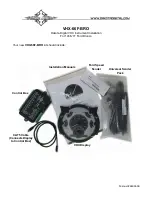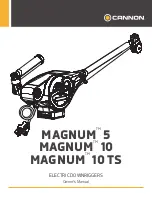
Basic Electricity
1:9
CP 1 – Cathodic Protection Tester Course Manual
©
NACE International, 2000
02/01/05
What is the current flow?
milliamp
amps
Ohms
volt
R
E
I
1
001
.
0
1000
0
.
1
=
=
=
=
Likewise, if we knew the current was 1 milliamp and the voltage was
1.0 volt, what is the resistance?
Ohms
amps
volt
I
E
R
1000
001
.
0
0
.
1
=
=
=
Note that we had to convert 1.0 milliamp to 0.001 amperes to use
Ohm’s Law since the voltage is in volts, not millivolts.
Ohm's Law plays an important role in your work and you need to be
thoroughly familiar with it. Turn now to Group Exercise 1.1 at the
end of this chapter and work through the calculations in the exercise.
Power
Power
is the energy used by an electrical device. It is necessary to
know the power required by a cathodic protection rectifier, for
example, in order to size the alternating current supply circuit.
Power is measured in watts. The equations for power and the
symbols used are:
P = EI
P = I
2
R
where:
P = Power in watts
R = Resistance in Ohms
E = Voltage in volts
I = Current in amperes
Summary of Contents for CP 1
Page 1: ...CP 1 Cathodic Protection Tester Course Manual February 2005 NACE International 2000 ...
Page 265: ......
Page 266: ......
Page 267: ......
Page 268: ......
Page 301: ...RP0169 2002 32 NACE International ISBN 1 57590 035 1 ...
Page 535: ...TM0101 2001 24 NACE International ISBN 1 57590 137 4 ...
















































